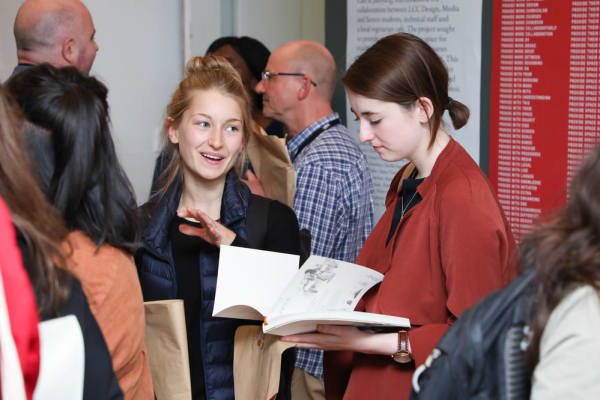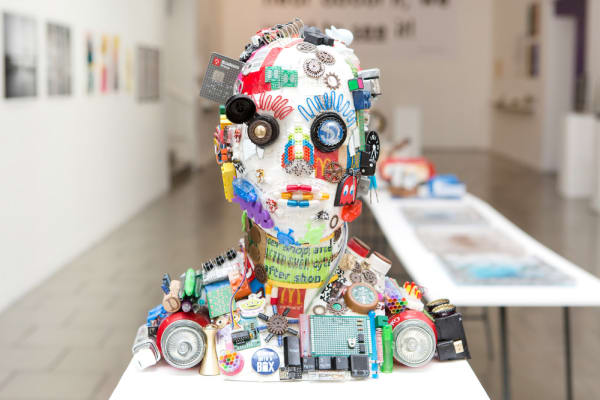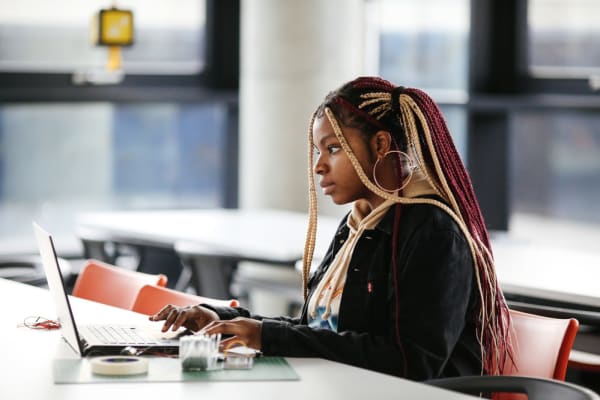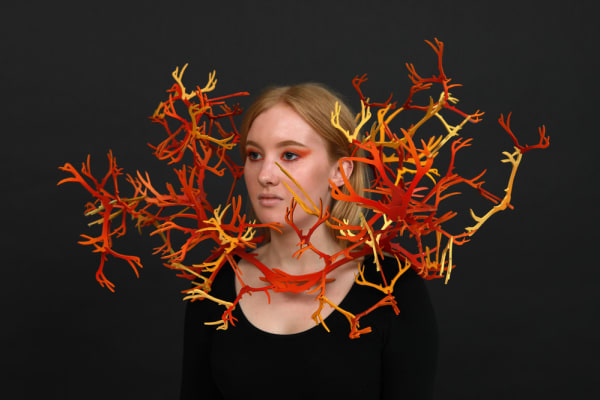Many people feel nervous about job interviews but preparing in advance will help you to feel relaxed and be at your best.
Check out our guidance on how to get ready for a successful interview. Find advice from recruitment experts, read top interview tips and try our online job interview simulator.
How to prepare for an interview
Watch our 3 minute video with advice from clothing company Levi Strauss & Co and media content marketing company Raconteur.
Recruitment experts share:
- what to research before job interviews
- how to make a good impression
- how to answer interview questions.
Job interview simulator
UAL students and graduates can access our online interview simulator. This provides sample questions and a tool to help you prepare for face-to-face, telephone or video job interviews.
Read our top tips below and then try the interview simulator. Answer questions by text or choose to record yourself with audio or video to review your performance. Set the timer to replicate a real-life scenario.
Top 10 interview preparation tips
- Leave yourself plenty of time to prepare. This will help you to feel confident on the day.
- Carefully read the interview invitation to see if they want you to prepare anything. If they ask you to bring a presentation or ideas, dedicate time to putting them together.
- Research the company as much as possible; find out about its structure, culture, size, location and position within the industry.
- Research the sector that the company operates in. Mentioning relevant trends, things you’ve read or examples from competitors, when you answer their questions, will demonstrate that you’ve done your research.
- Find out about the person/people interviewing you. LinkedIn or The Dots are useful tools for this.
- Re-read the job specification and think about the types of questions they might ask you. Plan answers for any obvious questions and include relevant examples from your previous experience in your answers where possible.
- If they’ve asked you to bring examples of work or a portfolio along, make sure you tailor it for the interview. Select high-quality work that’s most relevant to the job.
- Practice your interview technique with a friend or family member. Get them to ask you the questions below to make sure you have good answers prepared.
- Think carefully about what you wear. Even in the creative industries, it is better to dress smartly for an interview than to look too casual. Get your outfit ready the night before to save time and panic or rushing in the morning.
- Plan your journey to the interview and aim to arrive 10 minutes early.
Common job interview questions
It’s worth preparing responses to these regularly asked interview questions:
Tell me about your experience
Talk for a couple of minutes about your education, work history, relevant experience and skills.
Why did you apply for this job?
Explain what interested you about the role and working for the company. Demonstrate that you’ve researched what they do.
What do you think you can bring to the role/company?
This is a chance to explain how your skills, experience and/or ambitions match the job specification. Don’t be embarrassed to talk positively about yourself.
Do you have any questions for us?
Nearly every interview ends with this question and the answer should always be yes. Think of a list of questions about the company or the role that demonstrate that you’re keen to join the company.
During the interview
- Walk into the room with a positive attitude. Say hello, shake the panel members’ hands and smile.
- Listen carefully to questions, give yourself time to respond and don’t be afraid to ask the interviewer to repeat the question.
- Make sure you look the panel members in the eye and don’t focus too much on one person if there are several in the room.
- Ask questions to help you decide if the role and the company are a good match for you.
- Where possible, provide examples from your previous experience in your answers.
- If they don’t explain the recruitment process during the interview, ask them when you can expect to hear back.
- At the end of the interview, thank the employer for their time.
After the interview
If you haven’t heard back within the timeframe they said they’d contact you, follow up by email to see how things are progressing.
If you are unsuccessful, ask for feedback as this will help you prepare for future interviews. Don’t be downhearted – interviews are a learning experience for everyone and they get easier the more you do. If you made a good impression and showed enthusiasm they may consider you next time they are recruiting.
Resources
-
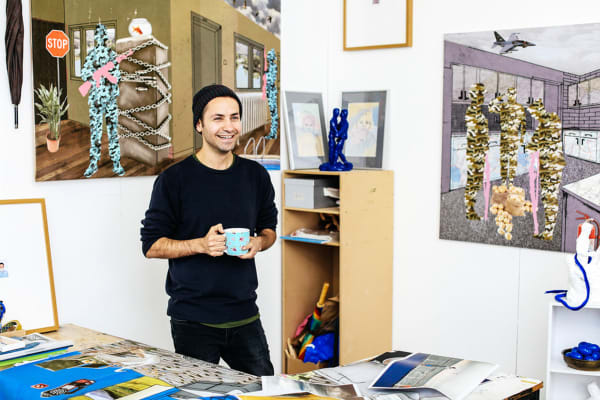
Mustafa Boga, MA Fine Art, Central Saint Martins. Photo Alys Tomlinson.
How to build a portfolio
Find out what to include in a portfolio and how to promote it.
-
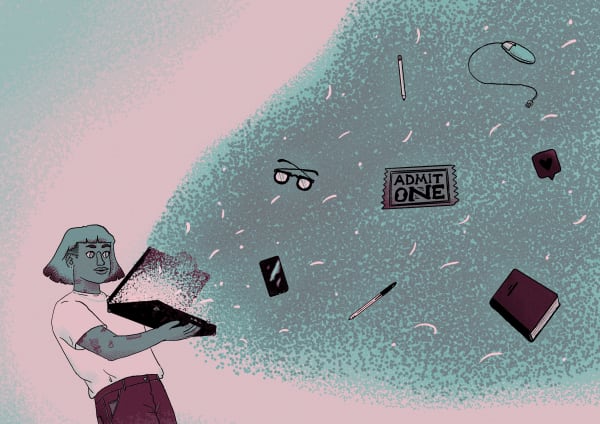
Image by Finn Weaver
Career resources board
Check out our career resource links from UAL and beyond.
-
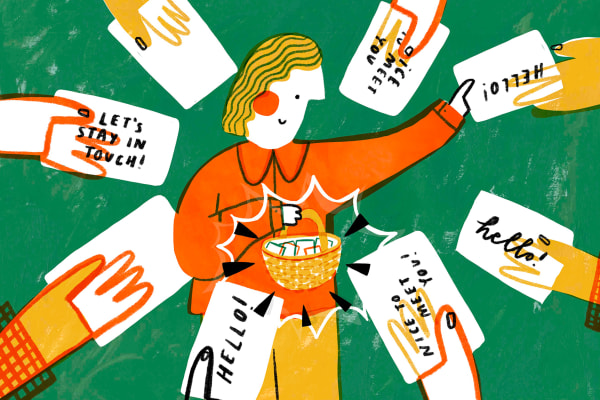
Illustration by Gracie Dahl
Network and make a good impression
Networking is an important way to promote your business or service and build connections.
